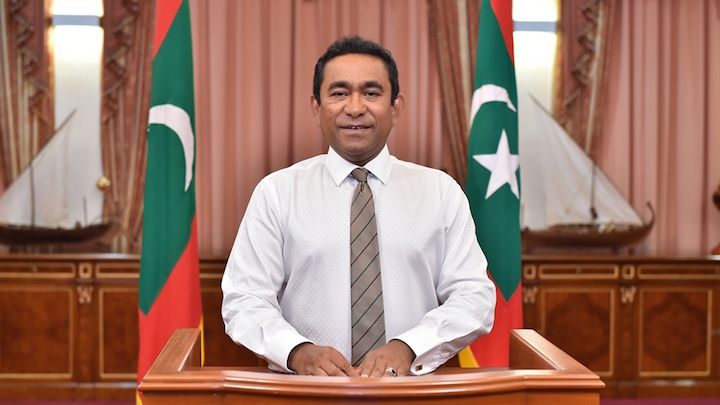President faces cross-party backlash over hike in food prices
Yameen said he had no choice but to hike food prices following a backlash from within his own party. The opposition has meanwhile accused him of mismanaging the economy

02 Oct 2016, 09:00
Ruling party lawmakers have berated President Abdulla Yameen over an abrupt hike in food and electricity prices, with one MP claiming he could no longer walk the streets because of criticism from the public.
Prices for food staples doubled overnight on Saturday, stoking anger against an administration that is already besieged over human rights abuses and a historic corruption scandal.
MP Ibrahim Didi described the food subsidy cut as a “gift to the opposition,” according to leaked screenshots of a conversation between the president and MPs of the Progressive Party of the Maldives on instant messaging platform, Viber. The MP for southern Addu City added: “I am not able to walk the streets because of what the people are saying. Electricity prices went up yesterday, today it is food. I have nothing more to say.”
Asma Rasheed, an MP for the capital Malé, said: “I will publicly take a stand against it even if I were to do so alone. Food was subsidised here even when there were no taxes.”
Become a member
Get full access to our archive and personalise your experience.
Already a member?
Discussion
No comments yet. Be the first to share your thoughts!
No comments yet. Be the first to join the conversation!
Join the Conversation
Sign in to share your thoughts under an alias and take part in the discussion. Independent journalism thrives on open, respectful debate — your voice matters.




